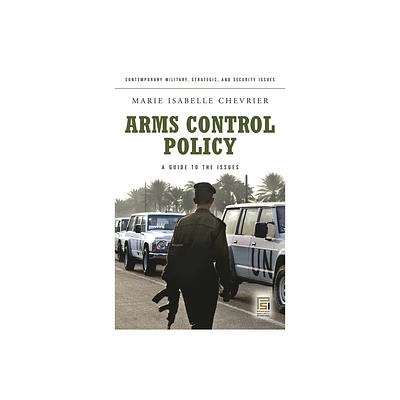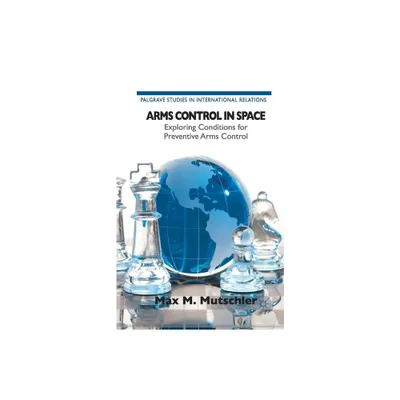Home
Arms Control and Proliferation Challenges to the Reset Policy
Loading Inventory...
Barnes and Noble
Arms Control and Proliferation Challenges to the Reset Policy
Current price: $14.95


Barnes and Noble
Arms Control and Proliferation Challenges to the Reset Policy
Current price: $14.95
Loading Inventory...
Size: OS
*Product Information may vary - to confirm product availability, pricing, and additional information please contact Barnes and Noble
In this book, the engagement in question is with Russia, and this monograph specifically addressed the issues of how those aspects of the reset policy with Moscow that concern arms control and proliferation are proceeding. It duly addresses the question of whether further reductions in strategic offensive weapons are likely anytime soon, i.e., is it possible to go beyond the parameters in the recently signed and so-called New Strategic Arms Reduction Treaty (START) treaty with respect to reductions. Other critical issues involve the issues of missile defenses that Moscow vehemently opposes and the question of tactical or nonstrategic nuclear weapons, which the North Atlantic Treaty Organization (NATO) wishes to have Russia reduce.Therefore, this book delves deeply into Russia's strategic posture with regard to the questions of why it needs and prioritizes nuclear weapons and what it thinks about the necessity for retaining large numbers of them (relatively speaking) to meet the security challenges posed not only by the United States and NATO, but also China. Based on this analysis, which takes into account the asymmetries in force structures and in strategic orientations of the two or three main actors, the author argues that the United States, NATO, and Russia will find it difficult to move forward on these issues quickly and achieve large-scale nuclear reductions or strategic harmony in the foreseeable future.At the same time, a key component of the reset policy is to obtain Russian assistance in stopping, if not reversing, Iranian and North Korean proliferation. Here, it appears that the reset policy has reached the limit of its utility, for Russia maintains a highly ambivalent and ambiguous policy with respect to Iran. As a result, we are possibly reaching a political dead end regarding Iran. Meanwhile, the Six-Party Talks on North Korea have reached an impasse.This book also analyzes Russia's posture on these issues and suggests alternative courses of action for the United States to undertake with regard to Russia in order to advance U.S. goals, particularly with respect to the Korean issue. The approaches suggested by the author regarding the impasse over Korea place this issue in a broader regional setting and take into account the fact that this issue is fully implicated in and involves the fast-changing dynamics of the overall international situation in Northeast Asia, e.g., the Rise of China and Russo-Chinese partnership there. It suggests far-reaching and innovative measures for the United States to take that would possibly break the logjam over Korea, but also would enable the United States to uphold a viable strategic equilibrium in Northeast Asia under conditions of dramatic change there.


















